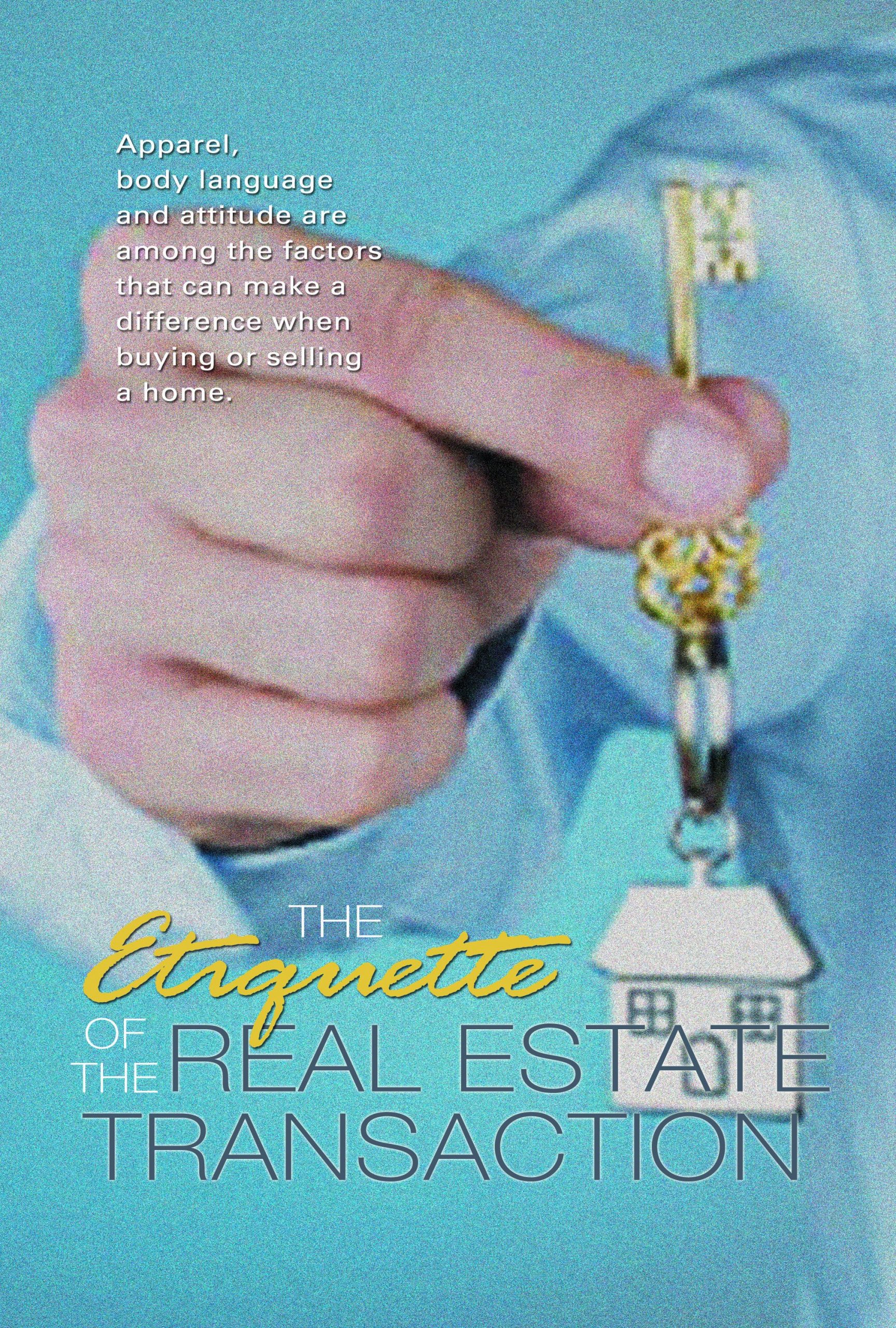Apparel, body language and attitude are among the factors that can make a difference when buying or selling a home.
Americans today enjoy the freedoms of the dressed-down workplace and relaxed attire standards that have become accepted at schools, churches, stores, restaurants and other places where people meet, greet and congregate—even formally. Indeed, comfort, casual and convenience are in, and the suit and tie, it would appear, are out.
Watchers of the new TLC cable program “Buying Naked” – in which nudist colony clients hunt for homes, and even meet with sellers, in the buff – may even get the idea that clothing itself is becoming optional in public places.
But when it comes to real estate transactions, appropriate attire and making a good impression via body language and demeanor remain important, particularly for buyers, sellers and agents meeting in person during an open house, private showing or other event, say the experts.
“We all judge each other based on first impressions, and certainly dress and attitude are seen first,” says Liz Recchia, owner/broker at We Sell Real Estate in Phoenix. “Standing with correct posture, speaking in clear sentences and dressing in an appropriate manner all assure the other party you are able and willing to fulfill your legal obligations.”
Jake Russell, a realtor with Keller Williams in Waco, Texas, says he often sees many sellers dressing like they’re running errands during a property showing.
“For most people, this real estate transaction will be the biggest they will ever make. My advice is to wear your very best clothes. People want to do business with great people, and buyers want to know that the home was well taken care of. Presenting yourself as having your life together leads buyers to believe the home is in great shape,” Russell says. “The way you dress and present yourself will also determine how a real estate agent treats you. If you and your house are sloppy, you may be put at the bottom of the agent’s list.”
The good news for sellers and buyers is that they don’t necessarily have to invest in a new business wardrobe or sign up for an Emily Post seminar prior to listing or shopping for a home. That’s because it’s less common nowadays for prospective purchasers to meet face-to-face with sellers and vice versa.
“In my area, we don’t close at the same title company, and it’s common that the seller is not in attendance when homes are shown,” says Jake Breen, managing broker/realtor at Berkshire Hathaway HomeServices Utah Properties in Park City, Utah, who isn’t as strict in his advice to clients on proper attire.
“Most of my clientele are actually dressed casually when they go out to home shop. But on the occasion we do meet a seller who is home, I recommend that, no matter the attire worn, they put on a smile, display positive body language and exude a good attitude that’s engaging and inviting,” Breen says.
Keep in mind that overdressing can sometimes backfire, too, especially for buyers. Eric Grauberger, an agent with Team Denver Real Estate in Denver, had a buyer client clad in fancy garb and ample bling and pulled up at a home for sale in a flashy car.
“The seller, who was home at the time, noticed the buyer candidate and later rejected his offer because she thought the buyer could afford much more,” says Grauberger.
The bottom line? Buyers and sellers should follow the face-to-face meeting protocol golden rule: Treat the other party as you would want to be treated, says Recchia, and abide by common courtesy. That means dressing for success, being polite, making eye contact, avoiding rude comments, shaking hands, not speaking too loudly or softly, and, of course, saying “please” and “thank you.”
Published in Connections Magazine March 2020 Issue. Copyright 2020.


